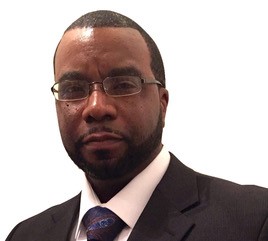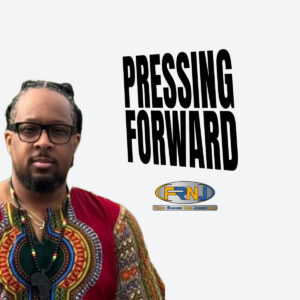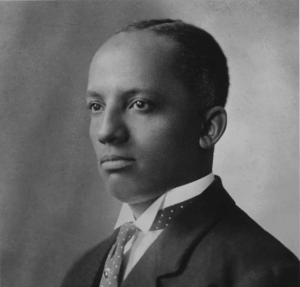Charles Boyer: Decriminalize Marijuana and Stop Arrest

Rev. Charles Boyer
By Rev. Charles Boyer | Salvation and Social Justice
On Monday, November 18, political leadership announced cannabis legalization would be punted to the voters in a 2020 ballot initiative. It is imperative that they move to decriminalize cannabis immediately. New Jersey arrests someone for a cannabis-related offense every 14 minutes, adding up to over 100 arrests daily. A disproportionate number are Black and brown people. It would behoove us to remember the racist origins of prohibition.
Prohibition was put into place as a means to arrest and control us, a reality that has not changed over the decades. Rather, it has evolved to fit new eras.
The first commissioner of the Federal Bureau of Narcotics, a precursor to the Drug Enforcement Administration, explained his rationale: “The primary reason to outlaw marijuana is its effect on the degenerate races.â€
That same man, Harry Anslinger, said: “Reefer makes darkies think they’re as good as white men.â€
When we look at the present-day criminal justice system, prohibition does exactly what it was designed to do. It’s hardly surprising that New Jersey arrests Black people for cannabis possession at a rate three times than that of white people, despite similar use.
People’s lives are being ruined daily by the de facto racial application of failed drug laws.
Confronting the deep-seated oppression in our criminal justice system neither begins nor ends with decriminalization. Yet it’s a key step in defusing a criminal justice system that, by the admission of one of its chief architects, was created as a bludgeon to criminalize people of color.
Paradoxically, as support for the end of prohibition has reached unprecedented heights, New Jersey’s arrests have climbed to record numbers: 37,623 marijuana-related arrests in 2017.
Given the clear destruction caused by New Jersey’s 37,000-plus arrests and the current legalization stall until 2020 a question hovers: Why is New Jersey taking so long to decriminalize?
African American lawmakers who were opposed to legalization all admit these racial disparities exist. Even certain Republican lawmakers acknowledge the same. Decriminalization is a vote count that should be easy to get in the legislature.
Our leaders owe it to Black and brown New Jerseyans to seize this moment. We must end the arrests and the punitive application of the law right now in the lame duck.
Black lawmakers who opposed legalization cannot in good conscious oppose decriminalization. Otherwise, they have wholeheartedly embraced the stigmas that were manufactured to demonize and restrain Black and Latinx communities. White lawmakers who were not fans of decriminalization cannot in good conscious stall any longer. Otherwise, they themselves are complicit in the racially unjust system they inherited.
Decriminalization done right could alleviate some of the lifelong consequences of a cannabis conviction, which can derail an entire life in an instant. Apart from jail and a criminal record, one marijuana conviction can lead to excessive fines, license suspension, eviction, loss of financial aid, and termination of employment, in addition to barriers to future employment.
Decriminalization should include an effective, streamlined expungement process, and should be applied retroactively. Data should be collected, and police departments held accountable for disproportionate enforcement.
A decent decriminalization policy should replace the state’s criminal penalties for adults’ possession of up to at least an ounce of marijuana with a civil violation no greater than $50. Additionally, it should allow the adult to request a penalty of 15 hours of community service in lieu of the fine.
For youth under 18, the parents or legal guardian(s) would be notified, the marijuana would be forfeited, and the minor would be required to complete an approved drug awareness program and community service.
It should prohibit any state agency from denial of unemployment benefits, denial of the right to operate a motor vehicle, disqualification from serving as an adoptive or foster parent, and denial of student financial aid, for possession of up to an ounce of marijuana. Simple possession can also not be the basis for revoking parole or probation.
Finally, revenue generated by the civil fines should go to fund drug awareness programs and not local municipal budgets.
Beyond the immeasurable human costs, prohibition drains hundreds of millions of dollars annually. In 2013, our state spent over $143 million enforcing possession of cannabis. These dollars can be better invested in communities.
As New Jersey’s legislative session winds down, lawmakers can begin to reverse the ravages of prohibition. We can stand as a national leader on racial and social justice. We can begin healing the scars of biased enforcement. We can usher in a new era. Or, we can continue derailing lives – each year we continue to increase the number of marijuana related arrests. In 2019, we’re on track to make over 40,000.
We cannot continue to criminalize Black and LatinX people while we wait to figure out legalization. We must stop this racist system of cannabis prohibition now.
Note from AC Joseph Media: If you like this story and others posted on Front Runner New Jersey.com, lend us a hand so we can keep producing articles like these for New Jersey and the world to see. Click on Support FRNJ and make a contribution that will go directly in making more stories like this available. Thank you for reading.







